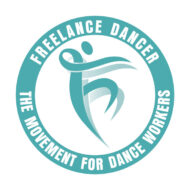This was the second discussion group of this series, and indeed the second discussion of it’s ilk I have ever been involved in… I did not know they existed, and before I came to one, I did not know they needed to exist. Around two tables, sit a selection of freelance dance artists, talking about what policies they would like to influence and how. It doesn’t take too long before frustration and emotion are bubbling to the surface. Years of training, striving, grant application-ing (yeah I made it a verb) and hoop jumping have left some raw nerves.
Cue my naive, ignorant ears wishing they were on the beach sipping cocktails by a pool. Not because I am young and just getting started, au contraire! At the age of 43, I’ve been around the block a few times. It was just that many voices, talking so passionately and with such emotion… I wanted the emotion to be something joyous and celebratory. Instead, it was fuelled by frustration and disillusionment.
I came to dance by a different route, and this is where my imposter syndrome breaks out in a red-hot rash of embarrassing spots as it frantically reaches for the concealer, but I haven’t been through years of dance school and training, I honed my craft through weekly dance classes and weekend workshops. In fact, my intention was never to become a dance teacher and performer, it just sort of happened. Hearing some of the struggles and setbacks the others have experienced was kind of heart-breaking.
One of the recurring themes throughout the discussions, is that dance is not viewed as a viable career option. This belief takes route in early school years, where the arts are given very little timetable action, compared with science and maths etc, and is constantly reinforced when performance arts budgets are the first thing to get scrapped when government and local council are short on cash.
Article 27 of the Universal Declaration of Human Rights states, ‘Everyone has the right freely to participate in the cultural life of the community, to enjoy the arts and to share in scientific advancement and its benefits’. Did you know that? I didn’t know that. How then are performance artists not valued as professionals?
There is, and there should be, a place for everyone. Just cos you don’t sound like Nina Simone, doesn’t mean you shouldn’t sing. It is not just famous people that have careers in performing arts.
The freelance dance artists that are sitting at this table, as well as the many that are not, have value and worth in society, even if they are not on the telly… they teach people to move, they facilitate self-expression, they inspire people, they entertain people, they provide a community, they help strengthen physical, mental and emotional well-being. Shouldn’t society and government support that? Shouldn’t that be cared for and protected?
I speak only for myself in this post, and express only my own thoughts and feelings relating to this experience, but I sincerely believe there needs to be a shift in collective consciousness. It needs to start at school, children do not have a ‘mind-set’… parents, teachers and society point them towards one… let’s be mindful of where we point. Dancing and movement have always been intrinsic in culture and society, the people who choose it as a profession need to be valued and protected in law, policy and people’s hearts.
Libby is a freelance dance teacher and performer. She teaches a weekly class, and is the dance leader for The Sambistas, a 30+ member strong community samba band, regularly performing and providing workshops at events, festivals and carnivals.
